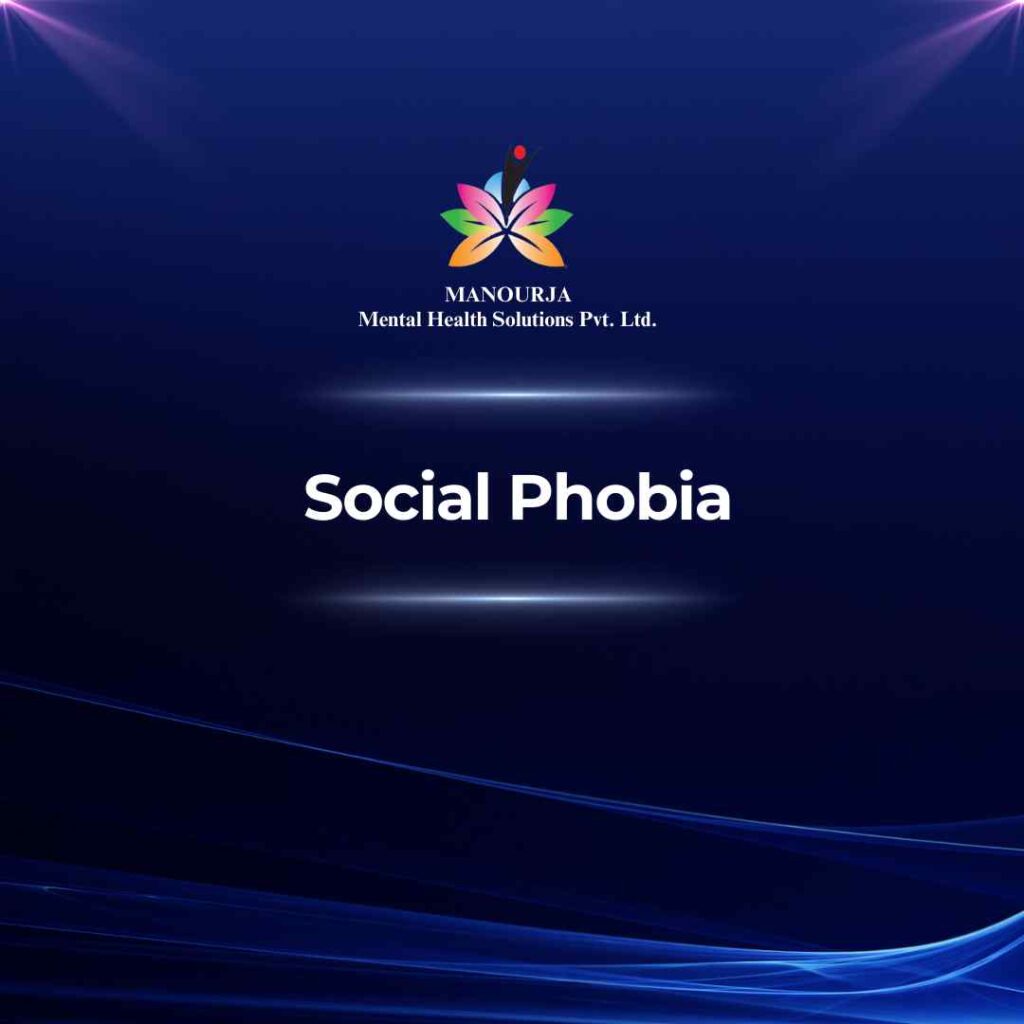Social Phobia

Social phobia, also known as social anxiety disorder, is an anxiety disorder characterized by an intense fear of social situations or performance situations where individuals feel they may be scrutinized or judged by others. People with social phobia often fear embarrassment, humiliation, or rejection, leading to avoidance of social interactions or significant distress when faced with these situations.
Social Phobia as a Sign and Symptom of Mental Illness
Social phobia involves a persistent fear that is excessive and disproportionate to the actual threat posed by social situations. Individuals with this disorder may experience physical symptoms such as sweating, trembling, rapid heartbeat, nausea, or difficulty speaking when exposed to feared social situations. The fear and anxiety can significantly interfere with daily activities, work, school, and relationships.
Mental Illnesses with Social Phobia as Symptoms
Social phobia is classified under anxiety disorders in the Diagnostic and Statistical Manual of Mental Disorders (DSM-5). It can manifest in various forms, including:
- Social Anxiety Disorder: The primary condition where social phobia is a defining symptom. This disorder includes:
- Performance Anxiety: Fear of speaking, performing, or being evaluated in front of others (e.g., public speaking, performing on stage).
- Interpersonal Situations: Fear of social interactions, conversations, meeting new people, attending social gatherings, or eating or drinking in public.
- Generalized Anxiety Disorder (GAD): While GAD involves excessive worry and anxiety about various aspects of life, some individuals with GAD may also experience significant social anxiety or avoidance of social situations.
- Other Anxiety Disorders: Social phobia can co-occur with other anxiety disorders, such as panic disorder, where individuals may fear having panic attacks in public or social settings.
Managing and Treating Social Phobia
Treatment for social phobia focuses on reducing anxiety and improving individuals’ ability to manage social situations:
- Cognitive-Behavioral Therapy (CBT): CBT is the most effective treatment for social phobia. Techniques such as exposure therapy, where individuals gradually face feared social situations, and cognitive restructuring, to challenge and change negative thought patterns, can help reduce anxiety.
- Medication: Antidepressants such as selective serotonin reuptake inhibitors (SSRIs) or serotonin-norepinephrine reuptake inhibitors (SNRIs) may be prescribed to alleviate symptoms of anxiety and depression associated with social phobia.
- Support Groups: Participating in support groups or group therapy sessions with others who have social phobia can provide encouragement, shared experiences, and strategies for coping with anxiety.
- Social Skills Training: Learning and practicing social skills, assertiveness techniques, and relaxation exercises can help individuals feel more confident and comfortable in social situations.
- Mindfulness and Stress Management: Techniques such as mindfulness meditation, deep breathing exercises, and progressive muscle relaxation can help reduce overall anxiety levels and improve coping abilities.
Early intervention and comprehensive treatment approaches are crucial in managing social phobia effectively, improving individuals’ social functioning, and enhancing their quality of life. Seeking support from mental health professionals can provide tailored strategies and support in overcoming social anxiety.
At MANOURJA, we believe in the transformative power of counseling. Our experienced therapists offer a safe and supportive space where you can explore your thoughts, emotions, and challenges. Through personalized counselling sessions, we’ll work together to develop coping strategies, build resilience, and achieve lasting positive change. Discover the path to a healthier, happier you with MANOURJA counselling services.
MANOURJA Rehabilitation Services
At MANOURJA, we’re dedicated to helping you in rebuild your life, after difficult times. Our rehabilitation services focus on understanding what you need to move forward, whether you’re recovering from addiction, trauma, or any psychological – social challenges. We create personalized plans, that are all about helping you, regain your strength and find hope again. With a caring team by your side, you’ll have the support to make real progress and take steps toward a brighter, healthier future.
